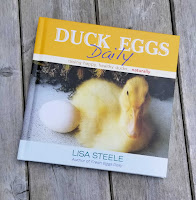12 Reasons Why Duck Eggs are Better Than Chicken Eggs
1. Duck eggs stay fresher longer
2. Duck eggs are richer and creamier
3. Duck eggs are more "eggy"
4. Duck eggs contain more protein + "different" protein
5. Duck eggs are more nutrient-dense
6. Duck eggs are better for baking
7. Duck eggs sell for higher prices
8. Lower feed conversion
9. Duck eggs are larger
9. Ducks lay year round
10. Ducks have a longer productive life
11. Ducks are low maintenance with a lower mortality rate
12. Duck eggs are versatile
One Downside to Duck Eggs


This article is © Copyrighted by Fresh Eggs Daily Inc. – All rights reserved - The original content appeared on www.fresheggsdaily.com. You may share one photo and a portion of this article provided you acknowledge Fresh Eggs Daily as the original source. Thank you.






